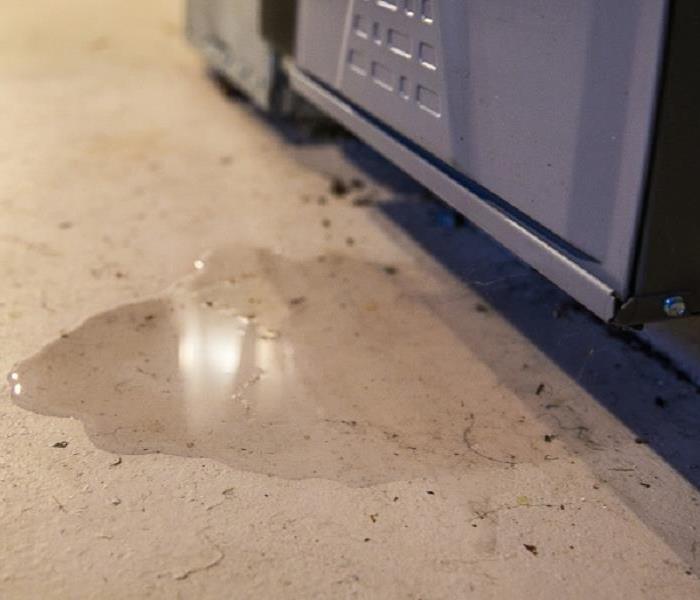Are Condensation and Mold Forming In or Around Your A/C Unit?
8/12/2016 (Permalink)
Across Lincoln, NE, we have experienced consistently high heat and humidity levels. This has wreaked havoc on the propensity of air handlers to keep up with customers’ demands. While a little dampness on a unit or a duct may sound harmless, the resulting effects on your insulation, drywall, and other building materials may be detrimental. Often times these issues go unnoticed and when they are discovered, mold growth is usually an issue. Please follow a few of these easy rules to make sure that you don’t end up with a larger problem.
- Inspect HVAC units often. We aren’t just talking about taking a peak up at your vents every once in a while, take a ladder and go inspect your return and handler frequently. Note any discoloration, corrosion or standing water. Look for water staining around the area that may have been caused by condensation or faulty components. Also make sure the condensation drain line is open and flowing into a drain that is working.
- Get Your AC Unit Serviced. Once a year, your unit should be serviced by an HVAC professional. They will be able to help identify any potential issues that you may encounter and curb water damage in your home or business.
- Get a moisture inspection using a hygrometer. Testing your indoor air quality can often times be as easy as knowing the indoor relative humidity and temperature. Any sharp fluctuations in relative humidity are a large indication that there may be a problem with your system. Regardless of where you set your thermostat, if you have relative humidity levels higher than 60% you are putting your home or business at risk of secondary damage including mold or condensation.
- Watch windows and vents. Mildew and condensation should not build up on these areas if your HVAC unit is properly sized for the area in which it is trying to condition. If you are seeing discoloration around your vents or noticing mold buildup on window caulking you may need to call a mold remediation specialist.
- Don’t ignore your senses. If you walk into your home and smell an earthy or musky odor you may have a mold issue. If you walk into your business and your skin instantly feels sticky and wet, your AC system may not be operating properly. If you see staining or discoloration that wasn’t seen before, don’t turn a blind eye. Using common sense and listening to your instincts are often the best ways to prevent further damage.





 24/7 Emergency Service
24/7 Emergency Service
